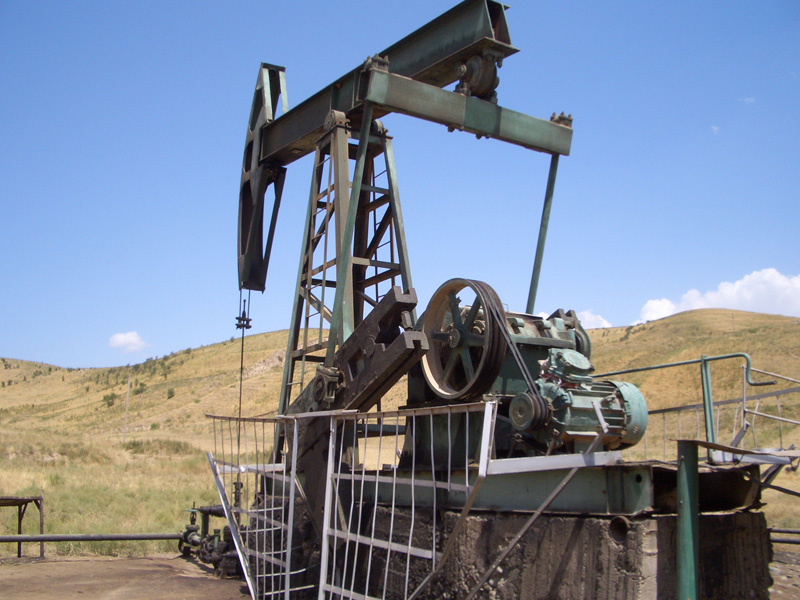
Political Scandal in Uzbekistan Harms Investment Climate
Publication: Eurasia Daily Monitor Volume: 11 Issue: 21
By:

Amid an ongoing domestic political scandal, Uzbekistan may face another wave of investment capital flight. On January 2, British-Canadian Tethys Petroleum announced its decision to leave Uzbekistan and focus on projects in Kazakhstan and Tajikistan. Tethys Petroleum is a public company listed on the Toronto Stock Exchange (TSX) and also has a secondary listing on the Kazakhstan Stock Exchange (KASE). The company stated that its “exit process” from the project on the North Urtabulak oil field in southern Uzbekistan will be completed within the next three months (https://www.tethyspetroleum.com/tethys/newscontent.action?articleId=3329889).
As noted in its press release, Tethys’s decision was taken due to “recent changes in the investment climate and political situation” in the country. This decision came unexpectedly, as Tethys Petroleum had recently announced further investment plans in Uzbekistan. In May 2012, the company signed a contract with Uzbekneftegaz to develop the Chegara field for the next three years. Then, in May 2013, it signed a memorandum of understanding with Uzbekneftegaz on investment in Baytere in North Ustyurt and planned to start exploration work in early 2014 (https://www.uzdaily.uz/articles-id-15645.htm).
Yet, in November 2013, Uzbekistan opened a criminal case against the British-Canadian company on charges of stealing oil in the amount of $30–40 million. Moreover, the head of Tethys in Uzbekistan, Bahram Salakhitdinov, was placed under arrest. According to the authorities, Tethys had allegedly paid $1.2 million into the City Makon shopping center construction project in Tashkent, which belongs to President Islam Karimov’s daughter Gulnara Karimova. In exchange, Tethys apparently expected to secure access to oil resources in Uzbekistan (https://www.uzmetronom.com/2013/12/04/tethys_petroleum_i_city_makon.html). This situation resembled the case of British company Oxus Gold, which, allegedly, was compelled in 2006 to sell 16 percent of its stock to the private oil company Zeromax GmbH, controlled by Karimova, in exchange for better business terms while operating in Uzbekistan (fergananews.com, December 5, 2012; https://wikileaks.org/cable/2010/01/10TASHKENT27.html).
During the past two years, a number of foreign companies have decided against pursuing any further investments in Uzbekistan’s energy sector. In September 2013, Korea National Oil Corporation (KNOC) announced that it would withdraw from its two projects exploring oil and natural gas in the Central Asian country. KNOC also declared that it was selling 20 percent of its shares in the “Aral” project, to be distributed among the remaining project participants, which included Russian LUKOIL Overseas, China National Petroleum Company (CNPC) and Uzbekneftegaz. The consortium’s Aral project explores energy fields in Uzbekistan’s sector of the disappearing Aral Sea. Although the consortium had confirmed the presence of prospective blocks containing about 15 billion cubic meters of natural gas and about 1 million tons of oil, KNOC claimed that “these reserves do not meet the business objectives of the project” (12news.uz, May 17, 2013). KNOC is also leaving other oil exploration projects in Uzbekistan, including two blocks in the Ferghana Valley region (Chust-Pap and Namangan-Tergachin) as well as two other blocks (West Ferghana and Chinabad) (https://easttime.ru/news/uzbekistan/kompaniya-iz-yuzhnoi-korei-vykhodit-iz-dvukh-proektov-v-uzbekistane/4669). The Korean oil firm announced that its decision to leave these projects was taken as part of an overall strategy to reduce financial costs, particularly in projects with a low probability of return.
The Aral project had already lost a participant in 2011—Malaysian Petronas. Moreover, in June 2013, this Southeast Asian investor reduced its share (from 33.3 percent to 11 percent) in the construction of a synthetic fuel production plant in Kashkadarya region, southern Uzbekistan. Petronas had launched plans to build this plant in November 2009, together with Uzbekneftegaz and South Africa’s Sasol Limited. The South African company also announced in June 2013 that it was decreasing its stake in the project from 44.5 percent to 25.5 percent (https://noviyvek.uz/novosti/uzbekistan-gtl-v-2014-g-privlechet-3-mlrd-na-stroitelstvo-zavoda-sinteticheskogo-topliva.html). Furthermore, in September 2012, the South Korean company Daewoo International ceased its oil exploration projects in Koskudyk and Ashibulak in Ustyurt region (https://en.trend.az/capital/business/2067759.html).
For now, the two other foreign participants in the Aral Sea project—LUKOIL and CNPC—have not expressed any intention to leave. Moreover, as international companies like Tethys, KNOC and Petronas continue to abandon Uzbekistan’s energy sector, it is possible that Gazprom may step back in to reclaim its leading role in the Aral project (https://expert.ru/expert/2014/04/nastupit-li-tashkentskoe-leto/).
Although the country’s overall oil production has fallen by 50 percent since 2003, and a 20-percent gasoline price increase in 2014 has resulted in domestic fuel shortages (https://www.centrasia.ru/news.php?st=1390313580), Uzbekistan still hopes to nevertheless boost its role in the international energy markets. Notably, as part of a $600 million investment in its energy sector, Uzbekistan recently began a pilot program to develop shale oil at the Sangruntau field in northern Navoi district. According to an estimate by the European Bank for Reconstruction and Development (EBRD), the project has broad regional significance: it will serve as a test of the viability of shale oil in Central Asia. Up to 60 percent of Uzbekistan’s territory may hold promise in developing this energy resource (https://tr.ebrd.com/tr13/en/country-assessments/3/uzbekistan).
Therefore, Uzbekistan still offers some significant opportunities to foreign investors. But its investment and business climate (it is rated 146th in the World Bank’s Doing Business ranking) is improving slowly. In 2014, though the World Bank acknowledged that the country made several business procedures easier (starting a business, registering property, obtaining credit, etc), the lack of a liberalized trade and foreign exchange regime continues to be a major constraint (https://www.doingbusiness.org/data/exploreeconomies/~/media/giawb/doing%20business/documents/profiles/country/UZB.pdf?ver=2). In an effort to improve Uzbekistan’s investment climate, President Karimov signed several legal amendments on January 20, which allow foreign investors some preferences for hiring foreign labor and obtaining multiple entry visas for their international employees, as well as providing more guarantees from the state for building necessary infrastructure and investment protection (https://economics.uzreport.uz/news_e_115764.html).
But Uzbekistan’s volatile political situation may frighten away those foreign companies already operating there. Investment in this Central Asian country has historically been quite sensitive to swings away from perceived political stability. After sharp international criticism of the Uzbekistani government’s violent response to the Andijan events of 2005, several big Western investors left the country, including US companies Newmont Mining and SkyTel. More dramatically, large Russian cellular network operator MTS was forced to exit the country in 2012, following a corruption scandal again allegedly involving Gulnara Karimova (see EDM, June 5, 2013). According to some views, MTS’s expulsion prompted the withdrawal of several other Russian investors from Uzbekistan (https://www.centrasia.ru/news.php?st=1390313580). This still-unresolved series of political scandals involving the Uzbekistani president’s daughter brings up serious issues about asset distribution and threatens further negative shifts in the investment preferences of foreign companies. As such, the current situation leaves the overall economic future of the country quite uncertain.




